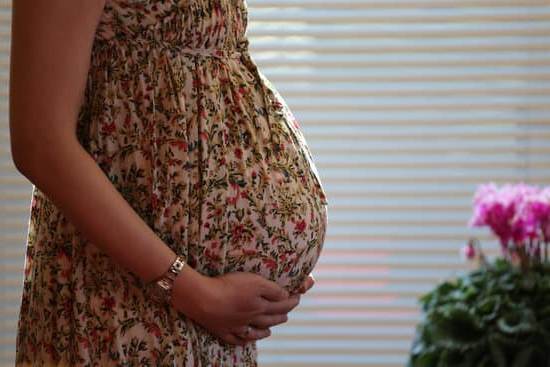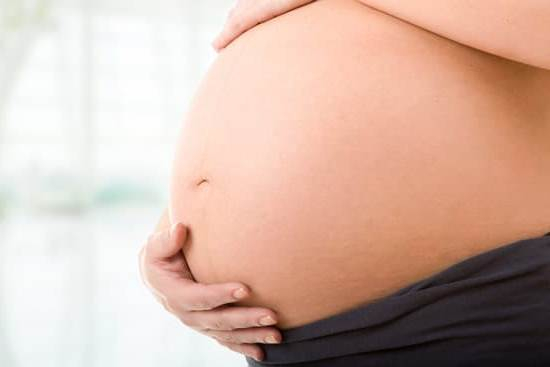The Covid-19 pandemic has brought about significant challenges for pregnant women, raising concerns about the impact of the virus on both maternal and neonatal health. With the evolving nature of the virus, it is essential for expectant mothers to be well-informed about the risks, preventive measures, and available resources. This article aims to provide a comprehensive understanding of the implications of Covid-19 on pregnancy and offer guidance for navigating this unprecedented situation.
Pregnancy during a global pandemic brings unique concerns and considerations. From prenatal care to mental and emotional well-being, expectant mothers face a multitude of challenges amidst the ongoing threat of Covid-19. Understanding how the virus can affect pregnancy is crucial in making informed decisions to ensure the health and safety of both mother and baby.
As we delve into the impact of Covid-19 on pregnancy, we will explore the risks and complications associated with contracting the virus while pregnant. The article will also provide insight into how pregnant women can protect themselves and their unborn babies from Covid-19 through preventive measures and proper prenatal care. Additionally, stories of resilience from pregnant women who have successfully overcome Covid-19 offer hope and inspiration for those facing similar circumstances.
What Every Pregnant Woman Needs to Know About Covid-19
Pregnancy is already a time of heightened concern for many women as they prioritize the health and well-being of their unborn child. However, the added risks and uncertainties brought on by the Covid-19 pandemic have only increased these concerns. As a pregnant woman, it is important to stay informed about the impact of Covid-19 on pregnancy and take necessary precautions to protect yourself and your baby.
First and foremost, it is crucial for pregnant women to understand that they may be at an increased risk of experiencing severe illness from Covid-19. This is due to changes in the immune system that occur during pregnancy, which can make women more susceptible to respiratory infections. Additionally, pregnant women with underlying health conditions such as gestational diabetes or high blood pressure may be at an even higher risk for complications if they contract the virus.
In addition to being at higher risk for severe illness, pregnant women should be aware of the potential impact of Covid-19 on their unborn baby. While there is still much to learn about how the virus affects pregnancy, there have been some cases of preterm birth and other complications associated with Covid-19 infection during pregnancy.
It is essential for expectant mothers to discuss any concerns or symptoms with their healthcare provider and seek prompt medical attention if they experience any concerning symptoms related to Covid-19.
Overall, staying informed about the risks and taking proactive measures to protect oneself from Covid-19 are essential for every pregnant woman. By prioritizing your own health and well-being, you are also protecting the health of your unborn child during this challenging time.
The Risks and Complications of Contracting Covid-19 During Pregnancy
Pregnancy is already a time of heightened concern for women when it comes to their health and that of their unborn baby. However, the added risk of contracting Covid-19 has brought about increased fears and uncertainties for expectant mothers. Understanding the risks and complications of contracting Covid-19 during pregnancy is crucial for the health and well-being of both mother and child.
The risks associated with Covid-19 during pregnancy include a higher likelihood of developing severe symptoms compared to non-pregnant individuals. This can lead to complications such as pneumonia, acute respiratory distress syndrome (ARDS), and an increased risk of preterm birth. Additionally, there is also a greater chance of ICU admission and the need for mechanical ventilation among pregnant individuals who contract Covid-19.
To protect both themselves and their unborn baby from these risks, pregnant women should take extra precautions to minimize exposure to the virus. This includes practicing good hand hygiene, wearing masks in public spaces, maintaining social distancing, and avoiding large gatherings whenever possible. It’s also important for pregnant women to stay up to date on vaccination recommendations and consult with their healthcare provider about getting vaccinated against Covid-19.
In addition to physical health concerns, pregnant women may also experience heightened mental and emotional stress related to the fear of contracting Covid-19. This can have an impact on their overall well-being and may require additional support from healthcare professionals or mental health providers. Overall, understanding these risks and taking necessary precautions is key in navigating pregnancy during the ongoing pandemic.
How to Protect Yourself and Your Unborn Baby From Covid-19
During pregnancy, it’s essential to take extra precautions to protect yourself and your unborn baby from Covid-19. With the risks and complications associated with contracting the virus during pregnancy, it’s crucial to follow guidelines and recommendations to minimize the risk of exposure.
Following Public Health Guidelines
One of the most effective ways to protect yourself from Covid-19 during pregnancy is by adhering to public health guidelines. This includes wearing a mask in public spaces, practicing social distancing, and frequently washing your hands with soap and water for at least 20 seconds. It’s also important to avoid large gatherings and crowded places where the risk of exposure may be higher.
Seeking Prenatal Care Safely
Attending prenatal appointments regularly is vital for monitoring both your health and the well-being of your baby. Many healthcare providers have implemented safety measures such as telehealth appointments, limited in-person visits, and strict sanitation protocols in their offices to minimize the risk of exposure to Covid-19. Be sure to discuss any concerns you may have with your healthcare provider so that you can continue receiving necessary prenatal care while reducing the risk of contracting the virus.
Staying Informed and Educated
It’s important for pregnant women to stay informed about Covid-19 developments and recommendations from reliable sources such as the Centers for Disease Control and Prevention (CDC) and the World Health Organization (WHO). This includes staying up-to-date on vaccination recommendations for pregnant women, understanding potential risks associated with Covid-19 variants, and knowing how to recognize symptoms of the virus.
By staying educated about Covid-19, pregnant women can make informed decisions to protect themselves and their unborn babies.
Navigating Prenatal Care and Covid-19 Precautions
The Covid-19 pandemic has caused widespread concern among pregnant women and their families. Navigating prenatal care and taking necessary precautions to protect oneself and the unborn baby has become a top priority for expectant mothers. Healthcare providers have been working tirelessly to provide essential prenatal care while also implementing safety measures to reduce the risk of exposure to the virus.
It is important for pregnant women to stay informed about the latest guidelines and recommendations from healthcare professionals regarding Covid-19. Many healthcare providers have transitioned to telemedicine for non-essential prenatal visits, in an effort to minimize potential exposure to the virus. Additionally, many hospitals and clinics have implemented strict safety protocols such as mandatory mask-wearing, social distancing measures, and frequent sanitization of facilities.
Pregnant women should also be proactive in communicating with their healthcare providers about any questions or concerns they may have regarding Covid-19 and their prenatal care. It is crucial for expectant mothers to feel supported and well-informed during this challenging time. By staying educated and following recommended precautions, pregnant women can help reduce their risk of contracting Covid-19 and protect the health of themselves and their babies.
| Impact of Covid-19 on Prenatal Care | Precautions for Pregnant Women |
|---|---|
| Healthcare providers implementing telemedicine for non-essential prenatal visits | Mandatory mask-wearing and social distancing measures in hospitals |
| Strict safety protocols in clinics such as frequent sanitization of facilities | Open communication with healthcare providers about concerns regarding Covid-19 |
Coping With the Mental and Emotional Stress of Covid-19 During Pregnancy
The Covid-19 pandemic has brought about unprecedented challenges for everyone, including pregnant women. The fear of contracting the virus, worries about the health and safety of their unborn baby, and restrictions on social interactions have led to increased mental and emotional stress for expectant mothers. Coping with these stressors is crucial for the well-being of both the mother and the child.
One of the key factors in managing mental and emotional stress during pregnancy amidst Covid-19 is staying informed while also limiting exposure to distressing news. It’s important for pregnant women to stay updated on guidelines and precautions related to Covid-19, but being inundated with negative information can contribute to an increase in anxiety. Establishing a healthy balance between staying informed and limiting exposure to stressful content can help reduce mental strain.
Additionally, maintaining open communication with healthcare providers can provide reassurance and support in navigating through these challenging times. Regular check-ins with a healthcare professional can help alleviate concerns and address any questions or uncertainties related to Covid-19 and pregnancy. Seeking professional support through virtual therapy sessions or support groups specifically tailored for pregnant women facing similar challenges can also be beneficial in managing mental and emotional well-being.
Studies have shown that practicing mindfulness techniques such as meditation, deep breathing exercises, and yoga can significantly reduce stress levels during pregnancy. Engaging in activities that promote relaxation and mindfulness can help create a sense of calm amidst uncertain times. Finding ways to stay connected with loved ones virtually, engaging in hobbies that bring joy, and setting realistic expectations for oneself are all important components of coping with mental and emotional stress during pregnancy in the context of Covid-19.
| Impact Factor | Information |
|---|---|
| Mental Stress | Increased due to fears of Covid-19 during pregnancy |
| Mindfulness Techniques | Effective in reducing stress levels |
| Open Communication with Healthcare Providers | Providing reassurance and support |
Successful Stories of Pregnant Women Who Overcame Covid-19
During the ongoing Covid-19 pandemic, there have been numerous success stories of pregnant women who contracted the virus and successfully overcame it. These stories have provided hope and reassurance to expectant mothers who may be anxious about the impact of Covid-19 on their pregnancies. Here are a few inspiring accounts of pregnant women who battled and conquered Covid-19:
Successful Stories
- Casey, a 32-year-old woman in her third trimester, tested positive for Covid-19 after experiencing mild symptoms. With the guidance of her healthcare provider, she was able to manage her symptoms at home and ultimately recovered without any complications.
- Emily, a 28-year-old pregnant woman, developed severe Covid-19 symptoms during her second trimester and required hospitalization. Despite the initial challenges, she received specialized care from a multidisciplinary team and delivered a healthy baby after recovering from the virus.
- Sarah, a 35-year-old expectant mother with underlying health conditions, tested positive for Covid-19 in her first trimester. Through close monitoring by her obstetrician and adherence to safety protocols, she successfully fought off the virus without any adverse effects on her pregnancy.
These accounts underscore the resilience of pregnant women in combating Covid-19 and offer valuable insights into navigating the challenges posed by the virus during pregnancy. It is important for expectant mothers to remember that while contracting Covid-19 during pregnancy can be concerning, many women have been able to overcome it with proper medical care and precautions. Sharing these success stories can serve as a source of encouragement for pregnant women facing similar circumstances amidst the pandemic.
The Future of Pregnancy and Covid-19
Effects on Fertility and Future Pregnancies
As the world continues to grapple with the effects of Covid-19, there have been concerns about its impact on fertility and future pregnancies. While initial studies have suggested that the virus does not directly affect fertility, there is still uncertainty about any potential long-term effects on reproductive health.
Additionally, there are ongoing studies on how Covid-19 may affect future pregnancies, such as the risk of preterm birth and other complications. It is important for women planning to conceive in the future to stay informed about the latest research and recommendations from healthcare professionals.
Vaccination Recommendations for Pregnant Women
With the emergence of vaccines for Covid-19, there has been a lot of discussion about their safety and efficacy for pregnant women. As of now, health authorities like the CDC recommend that pregnant women should have access to the vaccine and discuss their options with their healthcare provider. The decision to get vaccinated during pregnancy should be based on individual risk factors and potential benefits, as well as consultation with a trusted medical professional.
Supportive Resources for Pregnant Women
In response to the challenges faced by pregnant women during the pandemic, there has been an increase in supportive resources tailored specifically for this demographic. From virtual support groups to telehealth services, these resources aim to provide pregnant women with emotional support, up-to-date information on prenatal care during Covid-19, and strategies for coping with stress and anxiety.
It is crucial for pregnant women to seek out these resources and stay connected with their healthcare providers to navigate through these unprecedented times.
Conclusion
In conclusion, it is crucial for pregnant women to stay informed and empowered when it comes to navigating the challenges of Covid-19 during pregnancy. The impact of the virus on expectant mothers has been a topic of concern and study since the pandemic began. However, with the right knowledge and resources, pregnant women can take proactive steps to protect themselves and their unborn babies from the risks and complications associated with Covid-19.
As we have discussed, understanding the risks and complications of contracting Covid-19 during pregnancy is essential for every expectant mother. By being aware of these potential dangers, women can take the necessary precautions to minimize their exposure to the virus. Additionally, knowing how to maintain prenatal care while following Covid-19 safety measures is vital in ensuring a healthy pregnancy.
Furthermore, it is important for pregnant women to remember that they are not alone in facing the mental and emotional stress brought about by the pandemic. Seeking support from healthcare providers, family, and friends can make a significant difference in coping with these challenges.
Ultimately, by sharing successful stories of pregnant women who have overcome Covid-19, we can inspire hope and resilience in others facing similar circumstances. This empowering knowledge will continue to serve as a valuable resource as we navigate the future of pregnancy amidst the ongoing challenges posed by Covid-19.
Frequently Asked Questions
What Are the Fetal Complications of COVID-19?
Fetal complications of COVID-19 can include preterm birth, low birth weight, and respiratory distress. Some studies suggest a possible link to stillbirth and neurological issues, although more research is needed.
Can COVID Cause Down Syndrome in Pregnancy?
COVID-19 does not cause Down syndrome in pregnancy. Down syndrome is a genetic condition caused by the presence of an extra chromosome, typically occurring at conception. There is no evidence to suggest that COVID-19 can lead to the development of Down syndrome in a fetus.
Are Pregnant People Less Likely to Have a Severe Course of Disease With COVID-19 Than Are Non Pregnant People?
Pregnant people may be at a higher risk for severe illness from COVID-19 compared to non-pregnant individuals. Factors such as changes in the immune system, heart, and lungs during pregnancy can make pregnant individuals more susceptible to severe disease from respiratory infections like COVID-19. However, research on this topic is ongoing and evolving.

Welcome to my fertility blog. This is a space where I will be sharing my experiences as I navigate through the world of fertility treatments, as well as provide information and resources about fertility and pregnancy.





